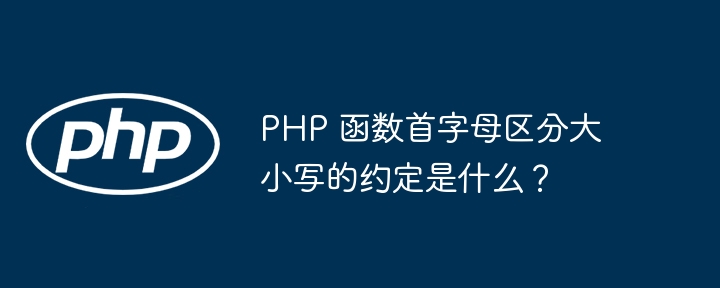Home >Backend Development >PHP Tutorial >What is the convention for case-sensitive first letters of PHP functions?
What is the convention for case-sensitive first letters of PHP functions?
- WBOYWBOYWBOYWBOYWBOYWBOYWBOYWBOYWBOYWBOYWBOYWBOYWBOriginal
- 2024-04-20 08:48:021241browse
PHP naming conventions include: class names in camel case with the first letter in capital letters, function names in lower case with words separated by underscores, method names with camel case in lower case letters, and constants with all capital letters separated by underscores. Follow these conventions to ensure code consistency and readability, avoid special characters and use short, descriptive function names.

PHP function first letter case-sensitive convention
When writing PHP code, it is very important to follow the following naming conventions, including The first letter of the function is case:
-
Class name: Camel case method, the first letter is capitalized. For example:
MyClass -
Function name: lowercase, if it is a public function, use underscores to separate words. For example:
my_function -
Method name: Public methods used in the class are in camel case, with the first letter lowercase. For example:
methodName -
Constant: All uppercase, with underscores separating words. For example:
MY_CONSTANT
Actual case:
The following is a code example written following the PHP naming convention:
// 类名:驼峰法,首字母大写
class MyController {
// 方法名称:驼峰法,首字母小写
public function myMethod() {
// 函数名:小写,单词之间用下划线分隔
echo my_function();
// 常量:全部大写,单词之间用下划线分隔
echo MY_CONSTANT;
}
}Important:
- Always follow these naming conventions to ensure code consistency and readability.
- Avoid using special characters such as hyphens or spaces.
- Keep function names short and descriptive.
The above is the detailed content of What is the convention for case-sensitive first letters of PHP functions?. For more information, please follow other related articles on the PHP Chinese website!

